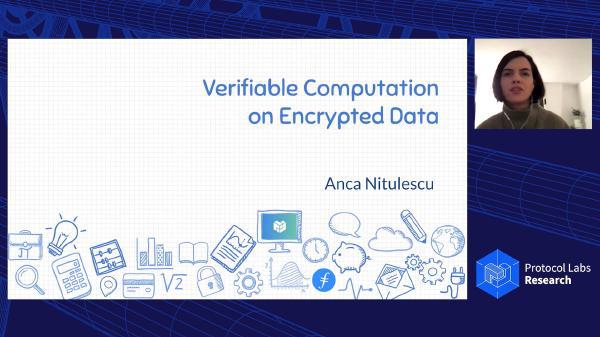Anca is a cryptographer working on research problems related to Filecoin.
Anca holds a PhD in Cryptography from École Normale Supérieure Paris (ENS) under the supervision of David Pointcheval and Dario Fiore (IMDEA, Madrid). Their PhD subject revolved around SNARKs, a tool to prove integrity for results of Delegated Computation. They were a visiting assistant researcher at Columbia University, USA working with Rosario Gennaro and Mariana Raykova on Verifiable Computation topics. They also completed a postdoc at Aarhus University on topics related to authentication primitives and theoretical aspects of SNARKs.
Their main research interests are cryptographic proving systems, especially zero-knowledge proofs and succinct arguments of knowledge (SNARKs).


